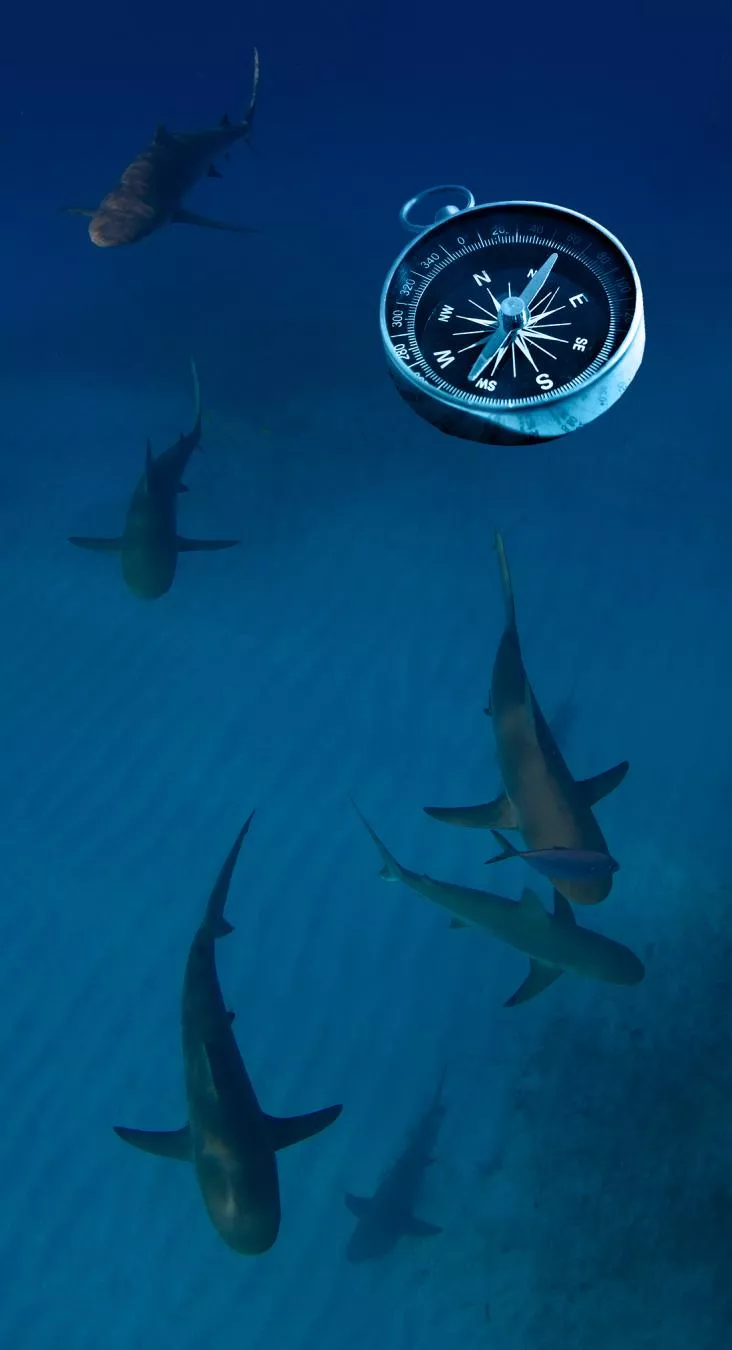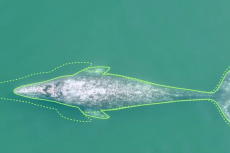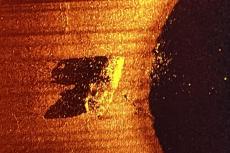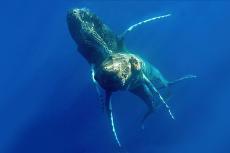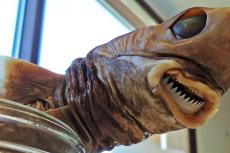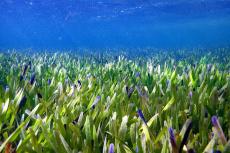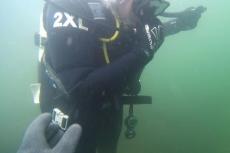Sharks can navigate via Earth's magnetic field
By subjecting sharks in a cage to magnetic fields that replicate those found in different geographical locations scientists show bonnethead sharks can indeed use Earth's magnetic field to navigate.
Since at least the 1970s, researchers have suspected that the elasmobranchs—a group of fish containing sharks, rays, skates, and sawfish—can detect magnetic fields. But up till now, no one had shown that sharks use the fields to locate themselves or navigate.
By exposing sharks to certain magnetic cue, researchers from Florida State University have now managed to demonstrate not only that sharks have an ability to detect Earth’s magnetic field but moreover that they are able to use it to travel long distances with accuracy.
The scientists captured the juvenile bonnetheads in St George Sound off the Florida panhandle and placed them in a room-sized pool surrounded by copper wire. This allowed researchers to simulate magnetic cues from the capture site and from positions roughly 375 miles north and south.
When the applied field was the same as at the collection site, the researchers found that the animals swam in random directions. And when applying a field similar to the northern site the sharks appeared disorientated.
But when subjected to the southern magnetic field, the sharks persistently changed their headings to swim north into the pool’s wall, toward their preferred habitat, which told the researchers they are using this information to navigate to home.
Researchers still don't know how sharks derive positional information from the magnetic field such as a map and compass information.
As magnetic fields go right through an animal magnetic field receptors could be placed anywhere in an animals body and there is no obvious place to look for such receptors. The study by Anderson et al (listed third in the references below) alleges they may be located in the naso-olfactory capsules of sharks.


